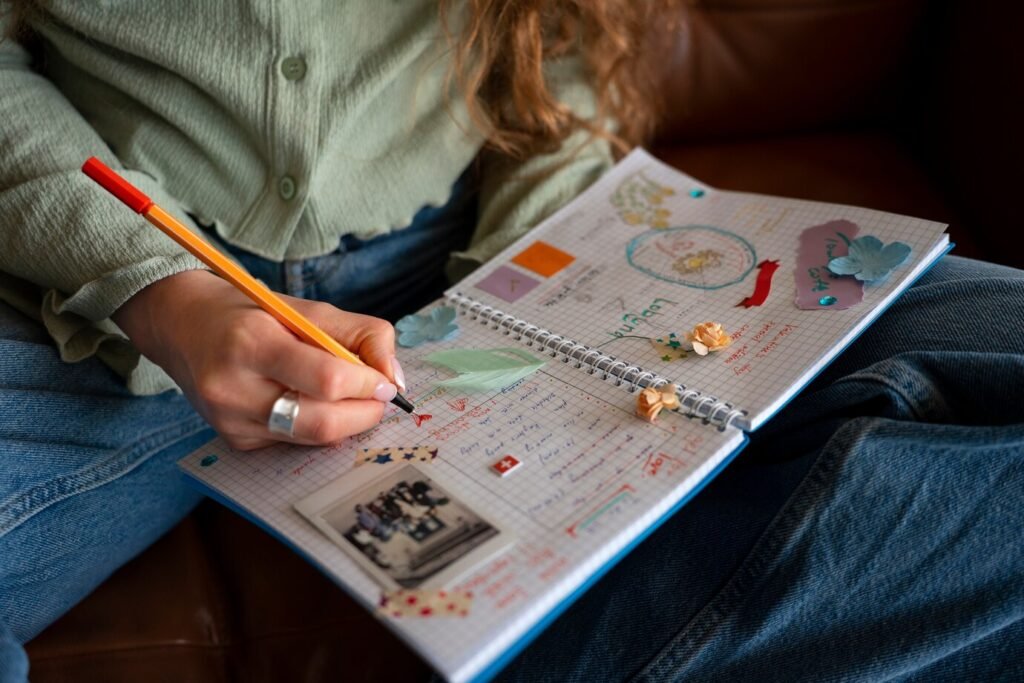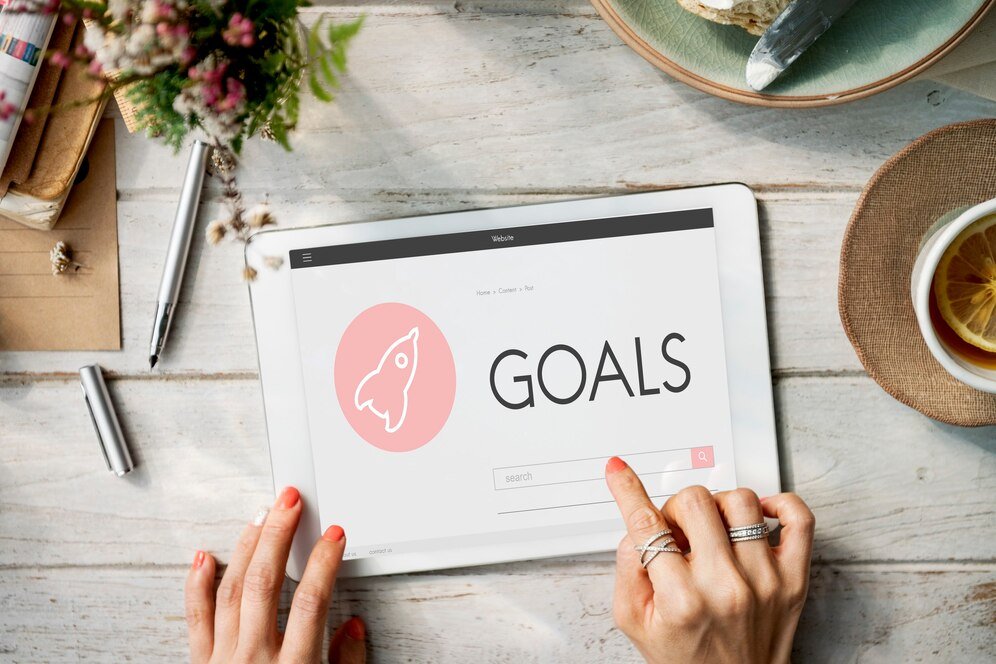Every person desires a life with a reason to be excited and feel healthy.
The real way to create significant change emerges through regular daily actions, even though big changes may feel more dramatic.
Our everyday habits determine how our lives will unfold. Our daily habits run our natural routine and control our response to choices, which leads to our results.
Small daily choices like our eating, time management, and stress responses follow each other to form our entire existence.
Creating good habits empowers you to improve how you live your life in positive ways.
Constructive transformations occur through the regular practice of small habits that build results little by little.
This article provides a distinct group of 35 daily practices to help you lead a better and healthier lifestyle right now.
This presentation will examine habit development rules and present useful methods that help people maintain their new practices.
I. Morning Rituals: Setting the Tone for Success

Your daily schedule at the beginning shapes how you feel and your ability to stay focused through the day.
Starting your day with a planned routine helps you achieve better performance throughout the day by getting your mindset and body ready.
When you start your journey with powerful energy and direction, your final outcome will be set.
1. Wake Up Early (and Consistently)

Just half an hour gives you valuable moments to concentrate on you or think quietly.
To maintain your circadian rhythm, stick to the same morning waking time seven days a week.
By following regular wake-up times, your body automatically controls cortisol and melatonin release, which affects your daily energy and nighttime sleep.
Keep your weekend wake-up time near your weekday schedule to reduce the feeling of social jet lag that leads to tiredness and confusion.
2. Hydrate Immediately
Your body feels empty of fluids after long periods of sleep.
Start your day by consuming a large glass of water with lemon before you have coffee or anything else.
Drinking water first thing boosts your metabolism while helping your digestive system work properly and refilling your water level in your body.
Opening your day with water helps your brain work better since dehydration affects mental abilities.
Lemon brings Vitamin C benefits and eases pH levels for your body.
3. Make Your Bed

Taking this easy accomplishment at the start of the day creates a positive mood throughout the day.
Taking this step creates more success, which then drives longer periods of work completion.
Having control over even small tasks can make you feel less stressed when you are under pressure.
Making your bed is your first accomplishment, according to Admiral William H. McRaven at the University of Texas commencement.
4. Avoid Hitting Snooze
Fragmented sleep during your alarm ringing will make you feel more exhausted than when you wake up immediately.
Teach yourself to exit your bed at every main alarm.
Move your alarm clock to another location near your bed to push you toward standing up and moving away from sleep.
Regular sleep interruptions due to hitting snooze reset your sleep pattern and make you feel drowsier.
5. Practice Mindfulness/Meditation

Taking only five to ten minutes to focus on mental silence or deep breaths will help you manage stress better and sharpen your concentration while making you aware of yourself.
Various guided meditation applications, such as Headspace, Calm, and Insight Timer, exist to assist you in your practice.
When you use mindfulness, your reaction to daily stress will decrease while you stay centered.
Scientific research shows that consistent meditation results in both structural and functional brain changes, especially in parts that control attention and manage emotions.
6. Journaling

Note down what you are thinking about yourself, what you feel inside, and your plans or expressions of appreciation.
Keeping a journal helps you to understand your ideas better and manage emotions while tracking your self-improvement progress.
Meditation helps you solve daily problems while revealing how you act and behave.
Many people use different ways to write in a journal, including stream of consciousness, gratitude practice, and setting goals.
7. Affirmations
State your personal achievements and future objectives with confident words.
Statements repeated with positive feelings show your subconscious mind different paths and make you feel better about yourself.
You can say, “I have every skill necessary,” “Success matches my level of worth,” and “My health supports my power.” Select positive affirmations you can trust and want to make true.
State your affirmations strongly as part of your daily practice.
8. Movement/Exercise

A brief morning workout gives you energy while keeping you positive and helping your body process nutrients faster.
Take any appropriate physical activity, such as strolling, practicing yoga, stretching, or going to the gym.
Physical activity lets endorphins escape from the body, which makes you feel positive.
The brain receives better blood circulation, which makes it work better.
9. Eat a Nutritious Breakfast
Start your day by eating a breakfast that gives you energy through protein, healthy fats, and nutritious carbohydrates.
Choose cereal and food products that are sugar- and processing-free.
Breakfast helps maintain blood sugar stability, which stops energy drops throughout your day.
Starting your day with nutritious breakfast combinations becomes a habit, like having oatmeal and berries with nuts, eggs alongside whole-wheat toast and avocado, or blending protein powder with fresh produce.
10. Plan Your Day
Allocate several minutes to view your schedule and decide which tasks require priority for the day.
Using this method allows you to stay on task while preventing overload.
Keep track of your tasks using either a planning tool or a basic note-taking system.
Dividing your daytime activities into smaller tasks reduces how challenging your day feels overall.
II. Productivity and Focus Habits: Maximizing Your Time
These habits enable you to get better results using streamlined methods instead of excessive effort.
Showing strong focus in our current digital world gives you a powerful advantage.
11. Time Blocking

Devote fixed intervals to complete one activity at a time. Setting time limits helps you concentrate better by blocking other tasks.
Treat your scheduled time periods as inviolable meetings to attend.
This system helps you direct your time ahead of time instead of giving in to what others want you to do.
12. Prioritize Tasks (Eat the Frog)
Start your day with your hardest or most important work because your energy level is at its peak.
People usually refer to this approach as “eating the frog.” Your success at completing difficult work gives you energy to face other tasks with ease.
13. Eliminate Distractions
Choose a focused workspace by disabling your device’s alerts and shutting down tabs that distract you.
Install programs that control what websites and apps you can open, especially when they distract you. Inform your relatives and work associates about periods when you require complete concentration.
14. The Pomodoro Technique
Set a timer for 25 active minutes followed by 5 minutes of rest in a focused work period.
Take a longer 20- to 30-minute break after you complete four periods of work using the Pomodoro technique.
Our brains work best with this method that matches our normal thinking periods while stopping us from getting tired.
Set either a timer or open a Pomodoro app to manage your work intervals.
15. Single-Tasking
Focus on one task at a time. Our brains do not handle switching between tasks; actually, single-tasking boosts output quality.
Our brains cannot handle switching tasks easily since it stresses cognitive processing instead of working on only one task at a time.
16. Take Regular Breaks
Take one-minute breaks every 60 minutes to move, stretch, or relax your eyes.
Periodic breaks from work help you avoid becoming overwhelmed and make you more efficient during work periods.
Taking short breaks enhances performance because they supply mental refreshment.
17. Học một điều mới mỗi ngày

Look for educational materials such as articles, podcasts, and videos to read and learn with.
Regular learning exercises help you think clearly and find out more information.
Use your free time to work on projects from your professional activities along with projects you like and topics of interest.
18. Review Your Goals Regularly
Remind yourself of your future plans and check if your everyday steps support them.
When you see your direction, you will want to stay on the path you have chosen.
19. Delegate or Outsource
Pass work to someone else when you do not need to handle it yourself.
This frees up your time for more important activities.
Delegate job responsibilities at work and put your housework needs into the hands of professional help.
20. Set specific ending hours for your workday each day.
Draw a clear ending point for your work every day to spend quality time with family and yourself.
Devote each day to planned working hours, then establish your recovery period.
Setting defined work hours helps you avoid burnout and gives you needed time to refresh before tomorrow.
III. Health and Well-being Habits: Nourishing Your Body and Mind
Your well-being serves as the vital basis on which you can create a satisfying life, so these health-related practices help you guard your mental and physical fitness.
Having both a strong body and an active mind helps you succeed at your targets while living your life completely.
21. Consuming enough water throughout your daylight hours maintains your health.
Drink eight glasses of water throughout each day.
Take a reusable water container and keep refilling it throughout your day.
When you do not drink enough water, you feel tired and get headaches, plus your thinking abilities decline. Monitor your water consumption to keep your daily water needs satisfied.
22. Eat Whole, Unprocessed Foods

Base your meals on vegetables, fruits, fresh protein sources, and nutritious grains.
Choose non-processed natural food options and avoid drinks with added sugar and unhealthy fats.
Your body requires healthy nutrients to work at its best. Watch the amount of food you take and focus on eating calmly.
23. Get Enough Sleep (7-9 Hours)

Prioritize sleep! Your body requires rest to heal physical injuries and mental fatigue while also helping control hormones and improving brain performance.
Start your evening with gentle activities that make you feel more relaxed before going to sleep.
Design your bedroom environment to be dark and peaceful with temperate temperatures.
24. Limit Screen Time Before Bed
Electronic devices with blue light emission disrupt your ability to sleep easily.
Stay away from screen displays during the last hour of your nighttime period.
Choose reading a book or listening to peaceful music before trying relaxation methods.
25. Spend Time in Nature

A brief walk in nature helps to decrease stress levels and makes you feel better while motivating original thought.
Being in nature provides several health advantages, with evidence that shows how it helps control blood pressure and fortifies the immune system.
Many people in Japan engage in the stress-relief practice of forest bathing, which involves spending time in a forest setting.
26. Practice Good Posture
Pay attention to how your body stands whenever you are moving around or being still.
Right posture enhances breathing and relieves back troubles while building self-assurance.
Leave your phone alarms as reminders to double-check your posture both at work and at other times.
Get an ergonomic chair and a standing desk to benefit your health.
27. Take the Stairs
Take the stairway instead of using the elevator whenever stairs are available.
This method helps you add physical exercise to your daily activities naturally.
Regular short exercise sessions all day long lead to important wellness gains.
28. Practice Gratitude
Devote daily moments to recognize the good aspects of your life.
Your attention will move from what you need to what you already possess.
Record in your journal or think about the things you appreciate. Studies show that expressing thanks makes people feel better both mentally and physically.
29. Connect with Loved Ones
Spend quality time with your loved ones in family and friend circles.
Healthy relationships bring us life satisfaction and good health.
Calling loved ones via chat or phone can improve your quality time together.
Having little human interaction hurts your body and mind simultaneously.
30. Practice Deep Breathing

Take deep breathing sessions to ease your pressure.
Taking deep breaths causes your parasympathetic nervous system to activate and eases your stress.
You should learn how to breathe from your stomach area to get the most out of this method. You can study and practice different kinds of breathing practices, including the box breath technique and the 4-7-8 method.
IV. Personal Growth and Development Habits: Expanding Your Horizons
These habits create opportunities for continuous self-improvement through your pursuit of learning and satisfying personal interests.
By following these habits, you can grow personally throughout life until you achieve your true potential.
31. Read regularly.
Dedicate moments to reading books of all types as well as resources connected to your professional background.
Regular reading increases what you know while teaching new words while sparking fresh ideas in your mind.
Plan to reach reading targets by choosing how many books and for how long you want to read.
32. Set Realistic Goals

Split big targets into simpler tasks you can take action on daily. Small targets feel easier to reach than major objectives.
To develop valuable goals, follow the SMART criteria, including specifics, measures, attainability, connection to purpose, and a clear schedule.
33. Step Outside Your Comfort Zone
Begin doing new activities, although they cause initial unease. Developing resilience power starts with making safe experiences.
Work toward hard situations by beginning with easy tasks you can handle. Accepting difficult moments leads you toward developing your abilities.
34. Reflect on Your Day
When the day ends, take time to review your accomplishments, then think about new knowledge plus things you need to enhance.
Regular evaluation of your activities shows you how to repeat positive results and avoid repeat failures.
Write down or mentally review your day experiences after getting ready for sleep.
35. Practice Self-Compassion

You must give yourself mercy when you stumble. Be gentle and understanding toward yourself when you would treat a friend the same way.
When you practice self-compassion, you recognize that making errors happens to all people while normal flaws exist in everyone.
You should provide yourself with kindness and knowledge instead of treating yourself with harsh criticism.
The Science of Habit Formation (and How to Make Habits Stick)
The “habit loop” produces habits in our brain by repeated action through three specific stages.
Your running shoes act as the initial trigger to stimulate the action.
The habit itself involves the simple action of running physically.
The reward after running improves your response to triggers (habits) through positive reinforcement.
You need to design the habit loop consciously to create lasting routines.
Build visibility by placing your desired habit cues clearly in the environment.
Prepare your workout clothes in advance by setting them out the night before and placing a rewarding book on your pillow.
Combine your habit with pleasurable activities to create interest. Start your exercise with your preferred podcast or give yourself a nutritious snack once you finish your task.
Make your habit simple and straightforward by reducing any task challenges. Start with small, manageable steps. To launch your goal of running, start by dedicating only a few minutes to the activity.
Choose privileges that bring fast, positive feelings as rewards.
Our brains naturally work to fulfill desires right away. Keep records of your advancement and reward yourself.
Using these methods provides a useful system.
Taking on all 35 habits would make the process feel hopeless.
Here’s a more sustainable approach:
Select two or three habits from each section that appeal to you right away.
Sticking with a few habits consistently brings better benefits than trying to maintain several habits. Aim for consistency over perfection.
To check your progress, equip yourself with habit tracker technology such as Habitica or Streaks and also keep a basic record of your achievements.
Patience is crucial since new habits require time to develop.
Research shows it takes different people between 18 and 254 days to develop new habits, with an average time of 66 days.
Regular failure should not prevent you from continuing to work on your habits.
Resuming your path right away is all you need to do.
Create enjoyment by including things that help you enjoy your new habits.
When working out, try listening to music and also get a fitness partner while rewarding yourself after finishing healthy tasks.
Combine your new habit with something you already do to form it efficiently.
Transition your habits through natural moments such as brushing your teeth by following meditation right after or setting up your push-up routine whenever you stop working.
This leverages existing neural pathways.
Pick a trusted partner to share your goals and assist each other in creating new behaviors. Regular feedback from another person greatly improves your habit-building chances.
Recognize and appreciate any changes you make, no matter their size. Daily success rewards help you continue your positive actions.
Check your habits against your personal lifestyle and update them accordingly.
Regularly review and adapt your habits to match new life conditions so they stay helpful for you.
Your habits should adjust according to changes in your life routines.
The Power of Compounding (Revisited)
Habits build value through continuous practice. Performing basic tasks each day consistently builds up to big achievements over time.
You gain increasing benefits from positive habits the same way interest grows when it builds upon itself.
Imagine improving just 1% each day. A single percent improvement each day multiplies 36 times during one year.
Repetition of minor steps brings about remarkable success. Multiple small improvements build up to significant change over time.